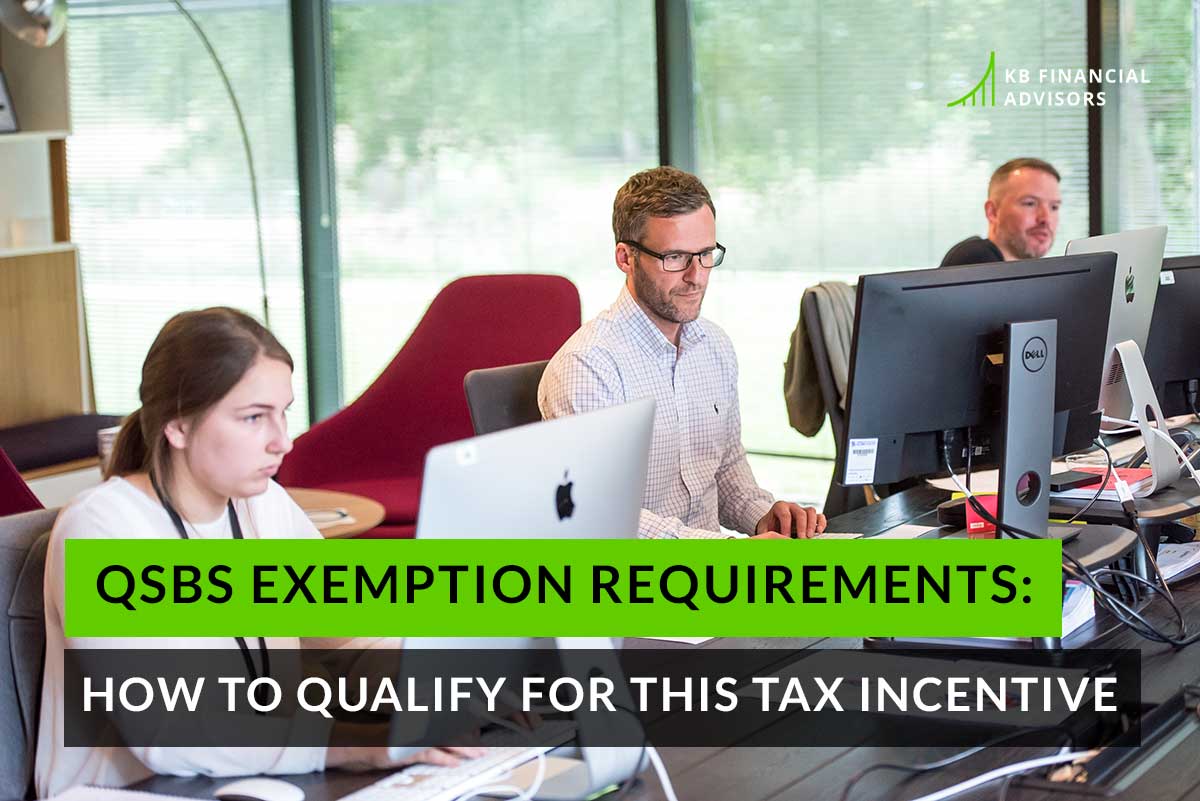What if I told you that you could receive $10 million dollars and not pay any taxes on it? You’d be interested, heck we all would be. Fortunately for all of us, that wasn’t a hypothetical question. It’s very much a real thing. The IRS offers the qualified small business stock (QSBS) exemption. This exemption allows you to recognize $10 million in capital gains without paying a single cent in taxes. As with most things, there are QSBS exemption requirements that must be met. I’ll focus on those rules in this post, but you can find other resources on our blog for more information on what exactly QSBS is and how it can work to your benefit:
Let’s get into the QSBS exemption requirements.
C corporation requirements for QSBS exemption
The most important qualification requirement is that for the shares to be eligible for QSBS, you must have them issued from a C corporation. This comes with its own nuances since C corporations have special taxation, but as an individual trying to take advantage of this tax-savings strategy, you must have the shares issued from a C corporation.
You need to meet other requirements too. The C corporation must be domestically established (i.e. U.S. based). Furthermore, the shares from this corporation must be original issuance, meaning that the company directly issued them to you. This also means you can’t buy the shares from an original shareholder; the company must first buy back the shares and then issue them back to you. There are certain conversion rules to consider, but for purposes of this discussion, we’ll stick to the basics.
Asset thresholds for the corporation
At the time of issuance, the C corporation must meet the following requirements to be considered QSBS shares:
- The aggregate gross assets of the corporation, at all times before the issuance of the shares, did not exceed $50,000,000
- The aggregate gross assets of the corporation, immediately after the issuance, do not exceed $50,000,000
Your company’s CFO can help you determine at the time of issuance if this is applicable. A letter from the company and/or CFO will work to establish the thresholds for IRS documentation requirement purposes.
Excluded business activities
The company must use 80% of the value of the assets in their company to actively conduct business.
If your company is actively involved in these fields, you’re considered ineligible for QSBS exemption:

- Accounting
- Actuarial science
- Architecture
- Athletics
- Brokerage services
- Consulting
- Engineering
- Financial services (including insurance)
- Health
- Law
- Performing arts
- Any trade or business where the principal asset of such trade or business is the reputation or skill of one or more of its employees
Hospitality and farming activities are also considered excluded business activities for purposes of the QSBS exemption. Your company cannot actively conduct business in oil, gas, and mining, nor real estate. Any passive business activity would also not deem the business eligible for qualified small business stock exemption. However, if your business builds software for these services, that is considered allowed.
Five-year holding period
In my time as an accountant, this is by far the primary reason most people aren’t able to claim the QSBS exemption: the five-year holding period.
To qualify, you must have held the shares for — at the very least — five years from the date of investment. You must sell the shares on the first day after this five-year investment period to get the exemption. If you sell prior to meeting this requirement, you’re on the hook for the capital gains tax liabilities on your net proceeds.
If you’re within a few days of meeting the holding period, try to postpone the sale of your qualified small business stock. Needless to say, don’t forgo a great sale because you’re three years away from the holding period requirement. Sometimes an offer is so enticing that it’s worth paying the taxes.
One way to get around this holding period requirement is to reinvest QSBS sales proceeds into a replacement QSBS business utilizing IRC Section 1045. This of course means that your money is still tied up in another company, but it can give you more time to meet the holding period requirement. Keep in mind, you only get 60 days to roll over the proceeds. For the insatiable creators, this might be a lucrative idea since it allows you to fund new ventures tax free.
QSBS exemption requirements and state tax considerations
The qualified small business stock exemption applies to federal tax treatment. Something to be mindful of is whether you reside in a state that doesn’t recognize or conform to this special tax incentive.
As of the writing of this post, the following states do not allow a tax exclusion for their state taxation:
- Alabama
- California
- Mississippi
- New Jersey
- Pennsylvania
- Hawaii and Massachusetts (partial conformity)
California even goes a step further, with an additional tax called the mental health services tax, which is imposed at 1% for taxpayers whose income exceeds $1 million dollars. Adding insult to injury, taxpayers with income in excess of $1 million must pay 90% of the tax liability by January to avoid additional penalties and interest. In regard to QSBS sales, tax liabilities can rack up rather quickly on the state side.
Moral of the story: With these types of sales, make sure you consider not only the federal side, but your state residence.
QSBS exemption: The cumbersome but worthwhile exemption
Is the QSBS exemption a bit burdensome? Yes.
Is it still worth your time? Absolutely.
This exclusion is a specialized tax law falling under IRC Section 1202. As such, expertise in this code language will help you ensure you avoid unnecessary taxes and have a full understanding of how to take advantage of this exclusion.
But don’t fret. You don’t have to become an expert; that’s what we’re here for.
Our professionals have dealt with the QSBS exemption and can offload the stress and time you’d otherwise spend on the process.
Book a call today to talk to myself or another expert on our team about being financially proactive.



